Last year my mother died. Often, my habit and love for reading felt unbearable and foreign. Other weeks it was reading alone that comforted me. It was all I wanted to do, all I was capable of doing, because all I wanted was to live inside of sentences, stanzas, stories. I didn’t and couldn’t go out there, the world was glaring in its surface of sameness, but books were ultimately part of the company that drew me out of a space that was dangerous, expanding in its withdrawal and silence.
In 2015, I also had a book of my own published. And, honestly, it was difficult to navigate a space that suddenly felt inarticulate to me. Kind friends and kind strangers alike sent me specific titles regarding grief. I also consumed books where grief, loss, rebirth, and death were implicit, distilled, expanded into unbelievable landscapes I hadn’t seen or understood as clearly before, in the surreal afterlife of my mother’s absence.
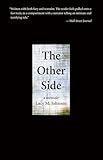

 One of the best books I read last year and have returned to more than once is Elizabeth Alexander’s The Light of the World. The book left me speechless in its love, grace, and dignity. Reading that book gave me hope that I too could survive and celebrate life itself. Alexander’s book gave me hope and I picked up Tracy K. Smith’s Ordinary Light and Lacy M. Johnson’s The Other Side. I also returned to Toi Derricotte’s The Undertaker’s Daughter.
One of the best books I read last year and have returned to more than once is Elizabeth Alexander’s The Light of the World. The book left me speechless in its love, grace, and dignity. Reading that book gave me hope that I too could survive and celebrate life itself. Alexander’s book gave me hope and I picked up Tracy K. Smith’s Ordinary Light and Lacy M. Johnson’s The Other Side. I also returned to Toi Derricotte’s The Undertaker’s Daughter.
Being on the road on tour for my own book, I often filled my suitcase with more books than clothing. Everything I wore was mostly black so I didn’t think or care about clothes at all. But I cared about books and knew there were certain books I needed to have with me should I wake up, inconsolable, in a hotel room on the other side of the country. And so, many books crossed state lines, their spines shifting in mile-high altitudes and time zones. I wrangled slim volumes of poetry into my camera bag, which was stuffed with lenses, notebooks, and a watercolor set.
I began thinking of books and geography, literally and psychically. I considered how landscapes affected my mood and how, of course, a voracious grief devoured everything. Sometimes I’d get frustrated because I couldn’t remember names of favorites characters or the way those characters in those books had once made me feel, so I’d go back and reread them. And, in my travels, I often looked out for marvelous independent bookstores where I would then pick up more books, often shipping them back to Brooklyn when I realized I’d be charged at the airport for being over the weight restrictions.
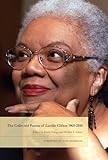

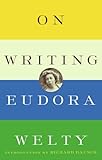 While working on a photography project in Oxford, Miss., last summer I reread William Faulkner’s As I Lay Dying and Eudora Welty’s On Writing. I’d also carried around Lucille Clifton’s Collected Poems, edited by Kevin Young, because I was working on photographs about black women’s bodies, identities, and the presence and interruption of landscape in terms of blackness.
While working on a photography project in Oxford, Miss., last summer I reread William Faulkner’s As I Lay Dying and Eudora Welty’s On Writing. I’d also carried around Lucille Clifton’s Collected Poems, edited by Kevin Young, because I was working on photographs about black women’s bodies, identities, and the presence and interruption of landscape in terms of blackness.
This journey made me pick up a second or third copy of Roger Reeves’s King Me because I ended up driving down to Money, Miss., and further into the Delta. King Me made me go searching for Jean Toomer’s Cane and Zora Neale Hurston’s Dust Tracks on a Road. Hurston’s grace and excellence sent me back, gratefully, into the words of Henry Dumas, Langston Hughes, and Robert Hayden.
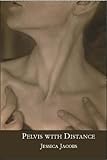
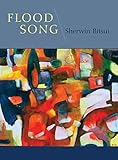
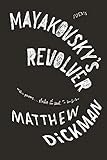 While I was in Portland, I caught up with Matthew Dickman but was so shy about meeting him I forgot to ask him to sign the hardcover of Mayakovsky’s Revolver I’d stashed in my rental car. And when I traveled down to Santa Fe to teach at IAIA (Institute of American Indian Arts), I dove again into Sherwin Bitsui’s Flood Song and read Jessica Jacobs’s Pelvis with Distance because I was in Georgia O’Keeffe country. I’m still working through O’Keeffe and Alfred Stieglitz’s letters, My Faraway One, and made some serious dents in it this year.
While I was in Portland, I caught up with Matthew Dickman but was so shy about meeting him I forgot to ask him to sign the hardcover of Mayakovsky’s Revolver I’d stashed in my rental car. And when I traveled down to Santa Fe to teach at IAIA (Institute of American Indian Arts), I dove again into Sherwin Bitsui’s Flood Song and read Jessica Jacobs’s Pelvis with Distance because I was in Georgia O’Keeffe country. I’m still working through O’Keeffe and Alfred Stieglitz’s letters, My Faraway One, and made some serious dents in it this year.
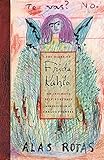
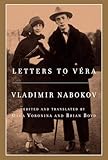 I’ve opened up Vladimir Nabokov’s Letters to Véra and placed those two near each other, like constellations, in my reading stack. Speaking of women artists, I reread the Diary of Frida Kahlo and Hayden Herrera’s biography of Frida Kahlo because I curated the Poetry Society of America’s Poetry Walk for the New York Botanical Garden’s astonishing exhibition “Frida Kahlo: Art Garden Life.” Lucky for me, I got to spend lots and lots of time with the poetry of Octavio Paz, one of my favorites!
I’ve opened up Vladimir Nabokov’s Letters to Véra and placed those two near each other, like constellations, in my reading stack. Speaking of women artists, I reread the Diary of Frida Kahlo and Hayden Herrera’s biography of Frida Kahlo because I curated the Poetry Society of America’s Poetry Walk for the New York Botanical Garden’s astonishing exhibition “Frida Kahlo: Art Garden Life.” Lucky for me, I got to spend lots and lots of time with the poetry of Octavio Paz, one of my favorites!
A dear friend just sent me a copy of Larry Levis’s The Darkening Trapeze. Literally, I’ve been hiding out in my house to devour it in one sitting, which obviously led to a second sitting so I could read the entire book aloud. But I had to leave my house eventually, so Levis has been riding the subways with me. We’re great company for each other.

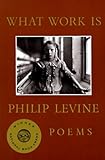 Reading Levis, of course, made me pick up Philip Levine’s What Work Is again and that somehow made me pull out W.S. Merwin, Mark Strand, and Jack Gilbert. When I journeyed to Vermont for the Brattleboro Festival, I cried at a moving tribute for Galway Kinnell and that made me buy another copy of The Book of Nightmares, which made me stay up all night in my hotel room reading aloud, remembering once how I’d been fortunate enough to walk across the Brooklyn Bridge with Kinnell and so many other poets like Cornelius Eady and Marilyn Nelson and Martín Espada. And I think it was over 90 degrees out and Bill Murray walked across that day with us too. Anyway, Kinnell pushed me toward Seamus Heaney and Czesław Miłosz. Throw in Tomas Tranströmer and Amiri Baraka’s SOS: 1961 – 2013, and somehow eventually I’m holding Federico García Lorca, who is always near, and whose words also travel with me on trains, planes, and dreams.
Reading Levis, of course, made me pick up Philip Levine’s What Work Is again and that somehow made me pull out W.S. Merwin, Mark Strand, and Jack Gilbert. When I journeyed to Vermont for the Brattleboro Festival, I cried at a moving tribute for Galway Kinnell and that made me buy another copy of The Book of Nightmares, which made me stay up all night in my hotel room reading aloud, remembering once how I’d been fortunate enough to walk across the Brooklyn Bridge with Kinnell and so many other poets like Cornelius Eady and Marilyn Nelson and Martín Espada. And I think it was over 90 degrees out and Bill Murray walked across that day with us too. Anyway, Kinnell pushed me toward Seamus Heaney and Czesław Miłosz. Throw in Tomas Tranströmer and Amiri Baraka’s SOS: 1961 – 2013, and somehow eventually I’m holding Federico García Lorca, who is always near, and whose words also travel with me on trains, planes, and dreams.
When I read poetry I’ll sometimes take down several poets who may or may not be speaking clearly to one another in some tone or mood or style. It helps me hear each of them even more clearly.
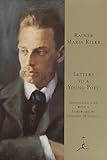 Finally, I think, if there’s time, the last two things I hope to read (again) before 2016 arrives will be Rainer Maria Rilke’s Letters to a Young Poet and the letters of Vincent Van Gogh.
Finally, I think, if there’s time, the last two things I hope to read (again) before 2016 arrives will be Rainer Maria Rilke’s Letters to a Young Poet and the letters of Vincent Van Gogh.
As I sit here looking at the bookshelves crammed with new books, I simply sigh in joy and think, too, of the stacks of books at my visual art studio nearby. This year I’m a reader for something for PEN, which means in the last months I’ve read over 50 books by writers of color, including poetry, fiction, and non fiction. Thinking just of that list alone, there are far too many books this year for me to include here. How wonderful! We’re all better for it!
So, here, quickly, are some more titles, both old and new, that changed me, whether by their grief, their beauty, their joy, their violence, their ambition, their desire, their imagination, their history, or future, but always, by their truth and courage:
 Ross Gay, Unabashed Catalogues of Gratitude
Ross Gay, Unabashed Catalogues of Gratitude
Terrance Hayes, How to Be Drawn; Lighthead
Patrick Phillips, Elegy for a Broken Machine
Ada Limón, Bright Dead Things
Robin Coste Lewis, Voyage of the Sable Venus
Jack Gilbert, Collected
Carl Phillips, Reconnaissance
Nicholas Wong, Crevasse
Vievee Francis, Forest Primeval
 Kyle Dargan, Honest Engine
Kyle Dargan, Honest Engine
Nick Flynn, My Feelings
Tonya M. Foster, A Swarm of Bees in High Court
Rickey Laurentiis, Boy with Thorn
Jonathan Moody, Olympic Butter Gold
Margo Jefferson, Negroland
Chris Abani, Song for Night
Rick Barot, Chord
Major Jackson, Roll Deep
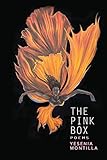 Yesenia Montilla, The Pink Box
Yesenia Montilla, The Pink Box
Randall Horton, Hook
Parneshia Jones, Vessel
Ellen Hagan, Hemisphere
Yusef Komunyakaa, The Emperor of Water Clocks
Audrey Niffenegger, Raven Girl
Michael Klein, When I Was a Twin
Patti Smith, M Train
Marie Cardinal, The Words to Say It
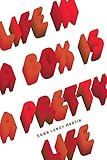 Dawn Lundy Martin, Life in a Box Is a Pretty Life
Dawn Lundy Martin, Life in a Box Is a Pretty Life
Michel Archimbaud, Francis Bacon: In Conversation with Michel Archimbaud
Paul Beatty, The Sellout
Marilynne Robinson, Housekeeping; Lila
Chinelo Okparanta, Under the Udala Trees
Christopher Robinson and Gavin Kovite, War of the Encyclopaedists
Francine Prose, Reading Like a Writer
Marie Mockett, Where the Dead Pause, and the Japanese Say Goodbye
Herta Müller, The Hunger Angel
Naomi Jackson, The Star Side of Bird Hill
Helen Macdonald, H Is for Hawk
Chimamanda Ngozi Adichie, We Should All Be Feminists
More from A Year in Reading 2015
Don’t miss: A Year in Reading 2014, 2013, 2012, 2011, 2010, 2009, 2008, 2007, 2006, 2005
The good stuff: The Millions’ Notable articles
The motherlode: The Millions’ Books and Reviews
Like what you see? Learn about 5 insanely easy ways to Support The Millions, and follow The Millions on Twitter, Facebook, Tumblr.









